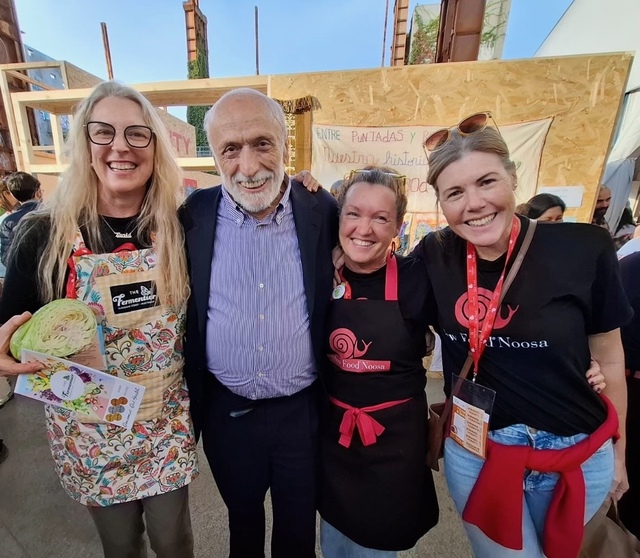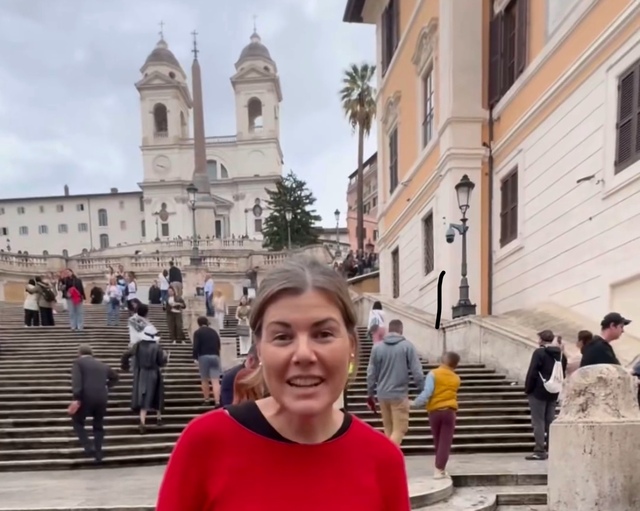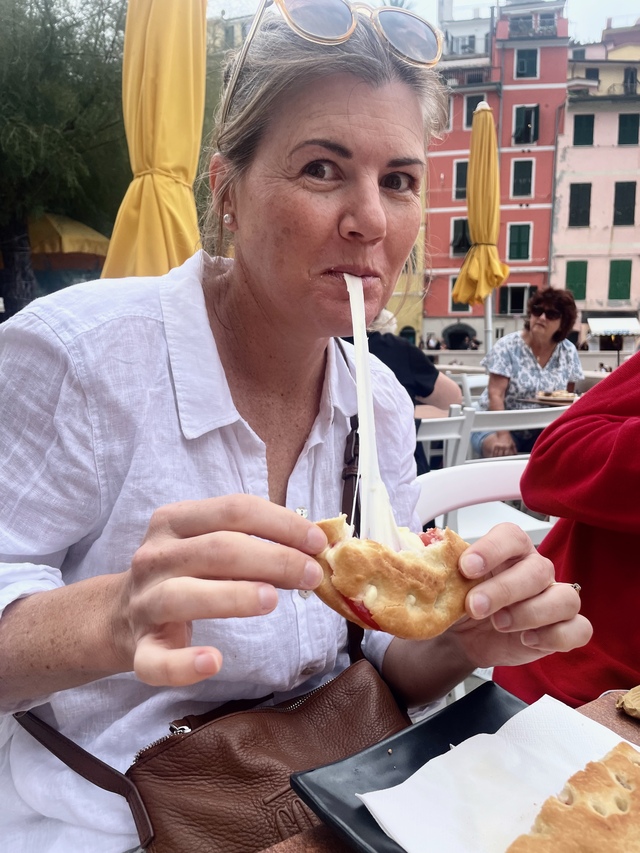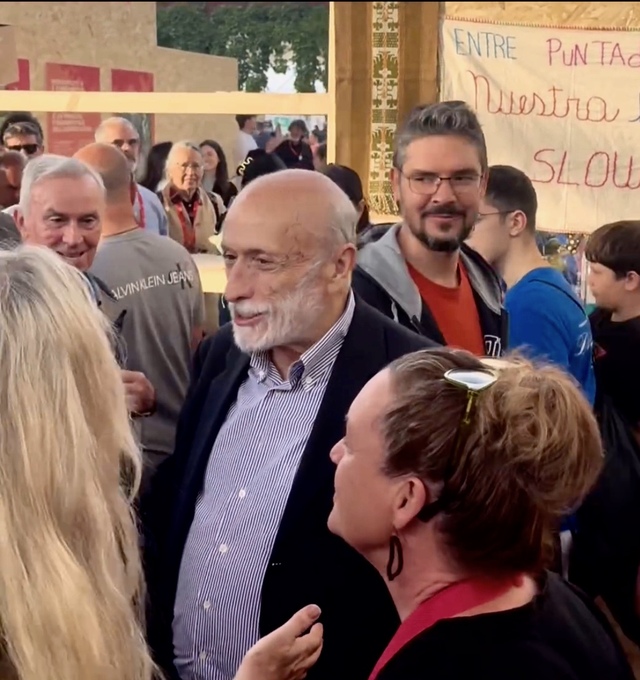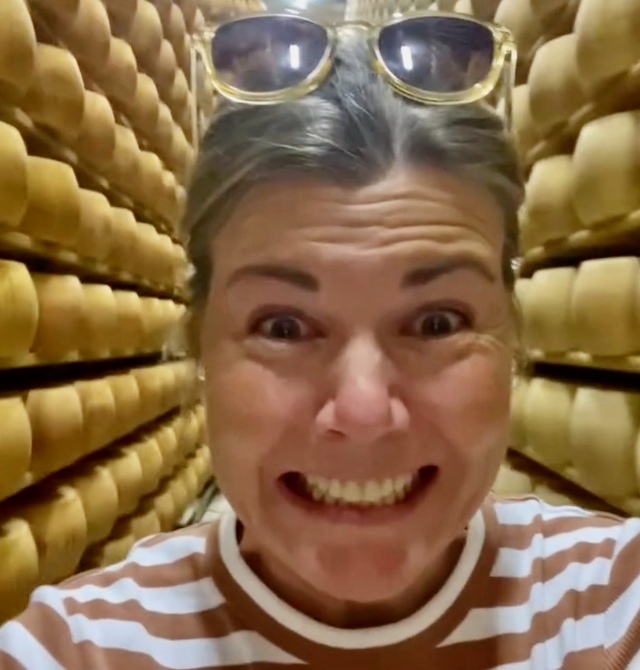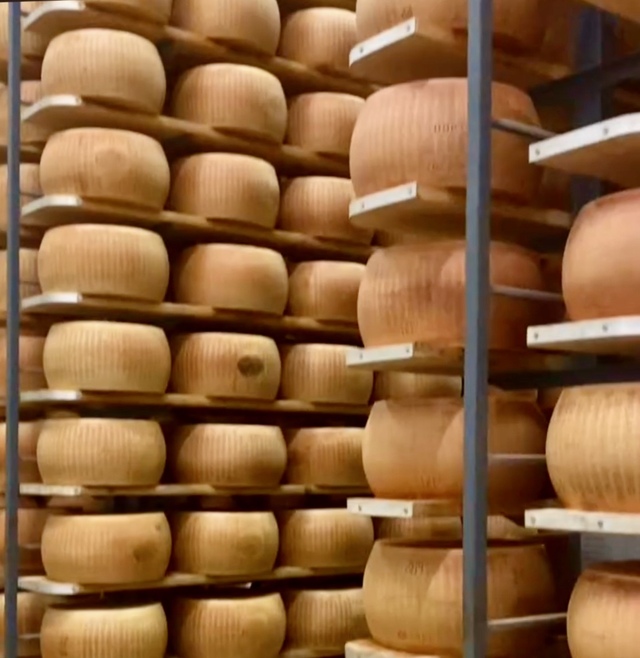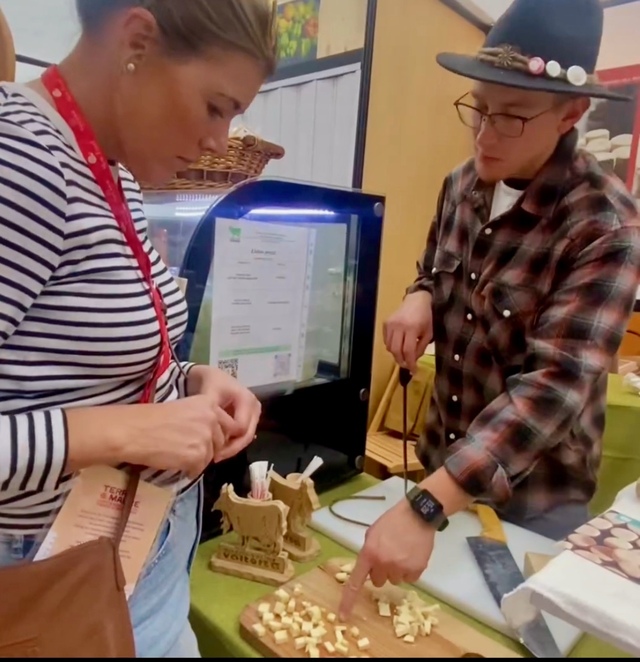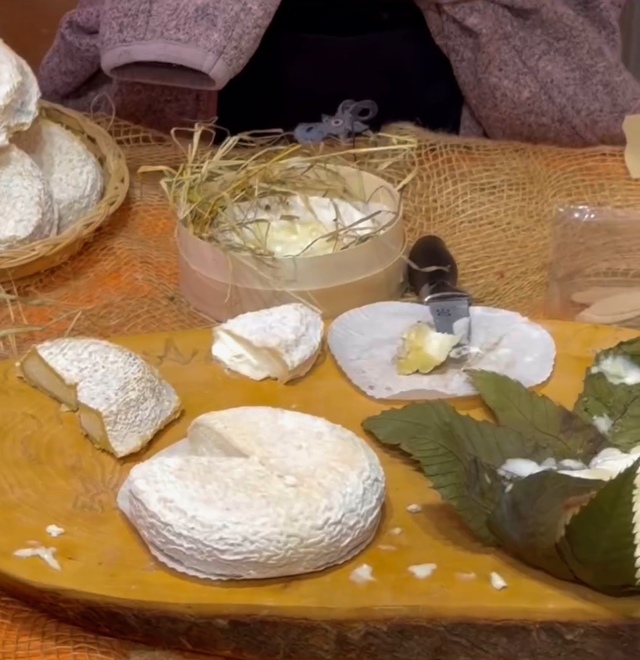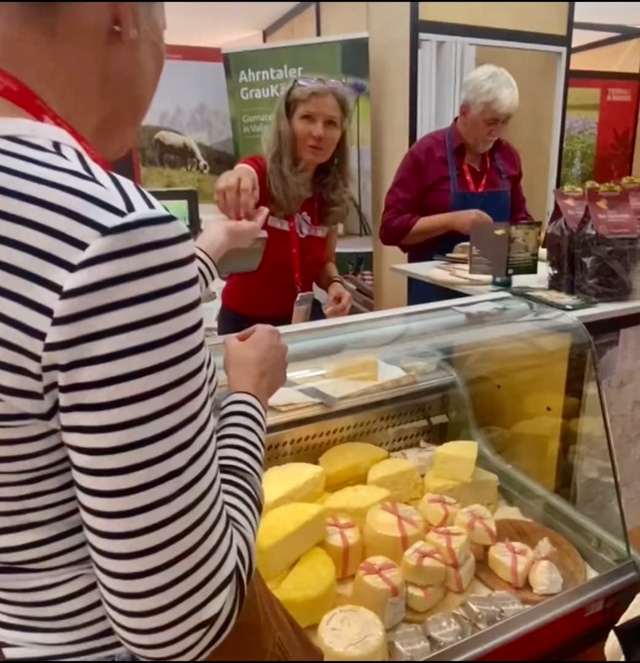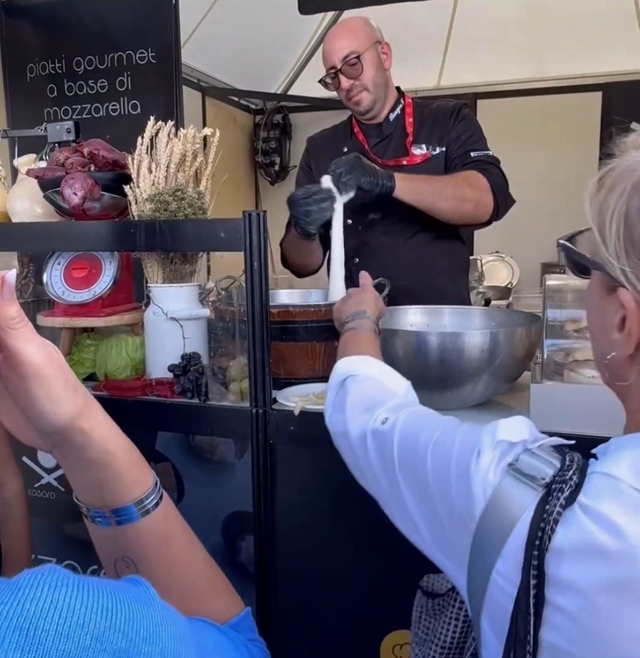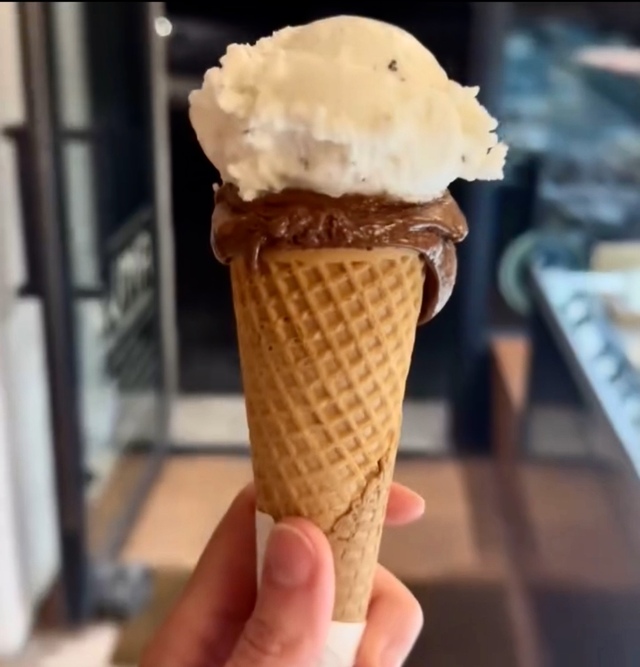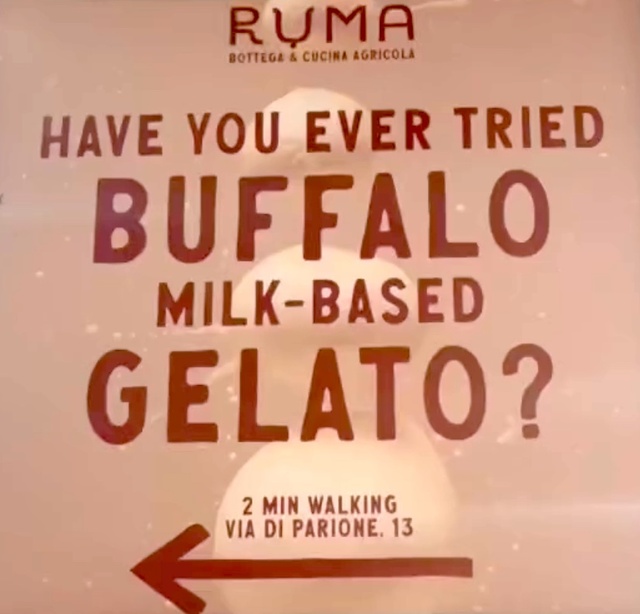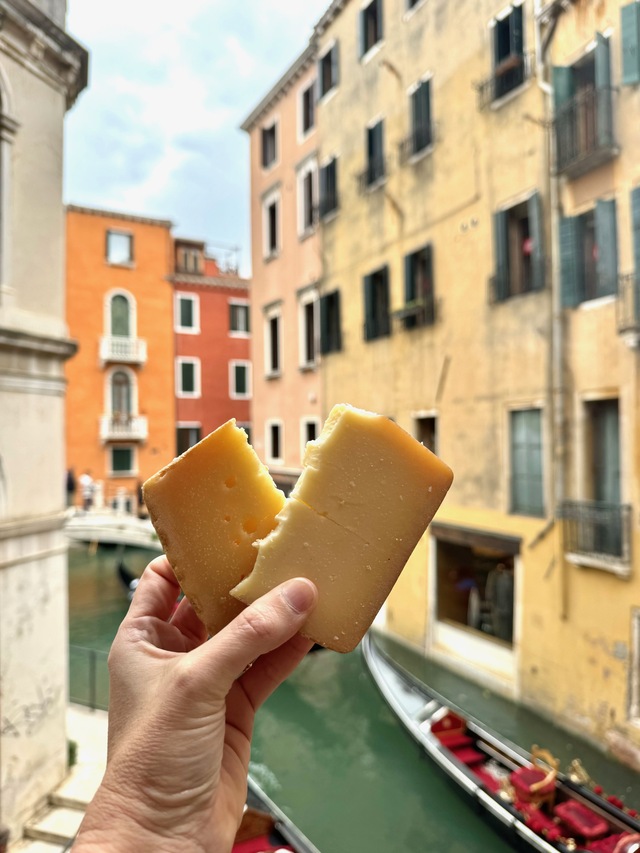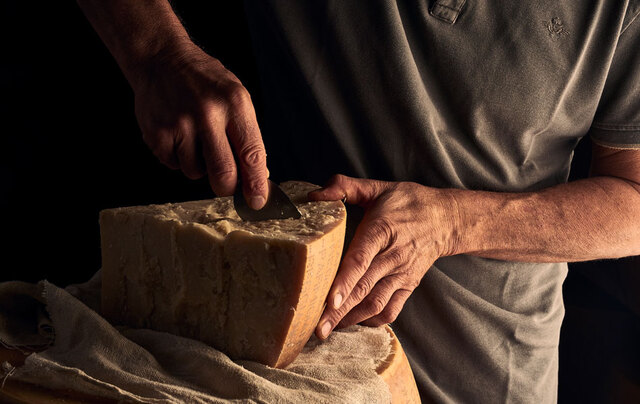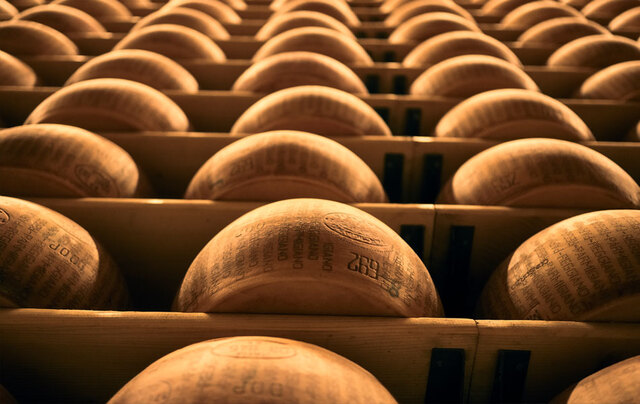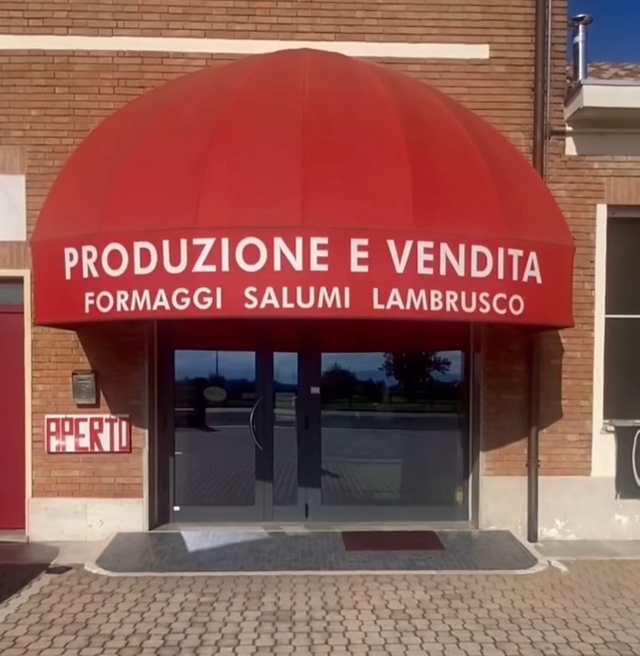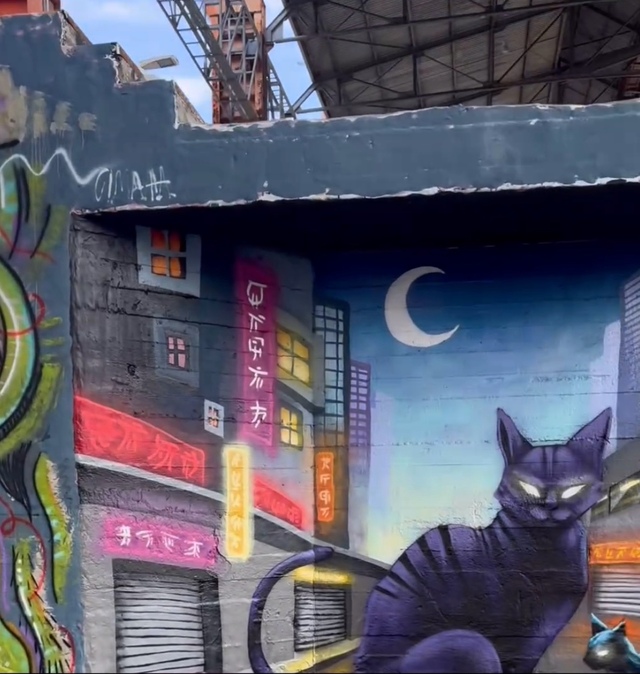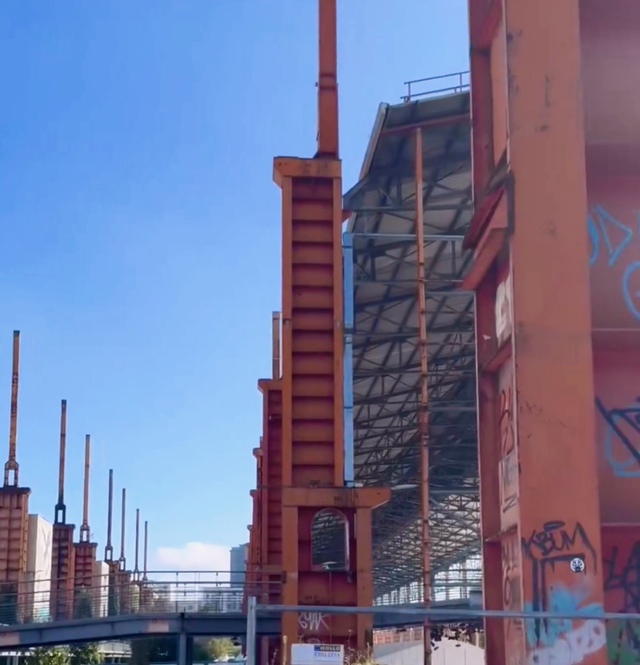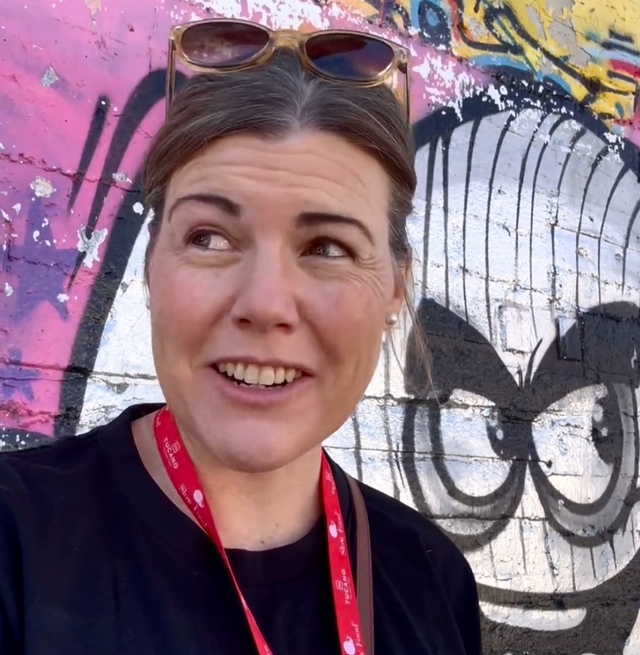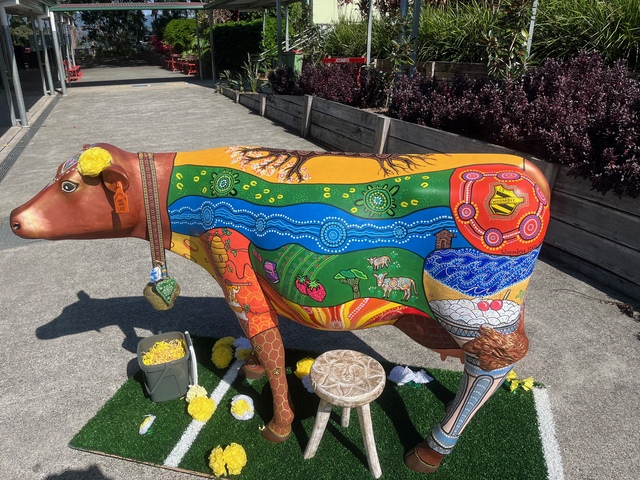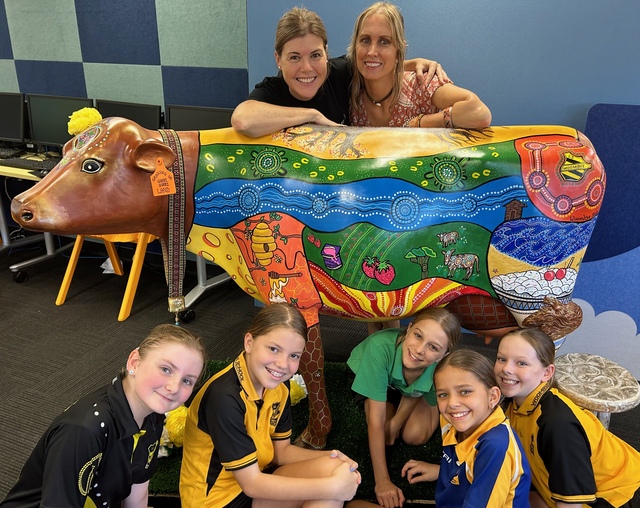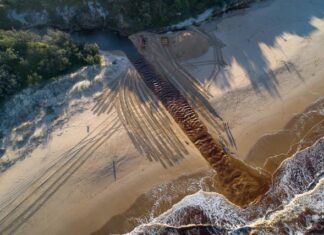Cheese-making is about time. Time to learn the craft, time to allow the cheese to mature.
It’s also about quality. Quality of the milk that is collected, quality of the production standards, quality of the people in the team who care.
Woombye Cheese Company’s Beth O’Leary said these principles of the age-old craft were reinforced as one of Slow Food Noosa’s delegates to the 2024 Terra Madre Salone del Gusto in Turin, Italy.
Beth took the opportunity to take her family to the biennial festival – perhaps the greatest collection of food and produce in the world at one location.
Held over five days in reclaimed industrial land at the heart of Turin, the festival sees more than 4000 food stalls and upwards of 500,000 people through the gates.
Food providers come from throughout Italy, Europe and around the globe.
Slow Food Noosa sent four delegates as well as self-funded committee members to make up the largest convivium at the Australian stand, not far from the Lavazza coffee caravan.
Beth and fellow Slow Food Noosa delegates Josh Smallwood of Noosa Cartel, and Tania Wiesmayr-Freeman of The Fermentier were joined by delegate lead and Slow Food Noosa Snail Kids Coordinator, Di Seels.
For Beth, it provided the chance to benefit from the experience of being able to meet with cheese manufacturers from one of the most dynamic areas in Italy.
That experience should translate incrementally to the Noosa, Gympie and Mary Valley regions, as well as throughout Queensland and Australia.
Woombye Cheese has already shown their credentials on the national and international stage for the cheeses they produce.
While in Italy, Beth visited the Caseificio San Simone factory in Parma and saw first-hand the time and care needed to produce the parmigiano reggiano cheese.
“This cheese gets made in these beautiful copper vats,” Beth said. “They have been making cheese every day since 1902.
“They make 18 wheels every day and the wheels weigh about 40kg. Some are up to eight years old and smell absolutely divine. I tried so hard to stay calm in the midst of the visit.”
Time is what gives parmigiano reggiano its unmistakable, intense yet at the same time delicate, flavour and its perfect texture.
Three generations have continued to create the cheeses, always using artisanal methods and following tradition.
Only top-quality milk from local farmers is selected each day, and it is processed just as their grandparents did by using an ancient tool called a spino.
Once the curd coagulates a wooden shovel is used to place it in a linen cloth and left to drain.
Beth said similar attention to local produce and hand-made methods were used at Woombye Cheese, where cheesemaker Stefan Wilson insisted on the traditional methods rather than a production line.
“All of the these become obvious in the finished product.
“Working by hand, you get a feel, a taste and touch.
“Stefen does this by bouncing the curd on the edge of the vat and knows when it’s ready.
“The milk may be acting in a different way on any particular day. This could be because of the weather conditions, the time of year or what the cows have been eating.
“We still do it by hand. That’s very rewarding.”
Getting to Italy and experiencing the Slow Food international festival was an adventure in itself for Beth.
Sometimes it is our fears that hold us back … fear of a career change, fear of deciding what’s right for others.
Yet so often it is making that decision that sets us on the right path.
For Beth it was deciding whether to nominate for possible selection as a Slow Food Noosa delegate to attend the festival.
After all, Beth was just two years into building on the small artisan cheese factory at West Woombye that her and husband Simon had taken over from Karen and the late Graeme Paynter.
The first of the O’Leary’s three children was in Year 12 at school and it seemed that it wouldn’t be the right time to make the journey.
However, it was put to Beth: “If not now, when will you be ready?”
The answer was obvious. If not this year then the same issue would come up in another two years, and then in another two years.
As it turned out, the whole family travelled to Italy and the early fear was turned around 180 degrees to be the best decision.
“I was very grateful that this opportunity was presented like this to me.
“For me, it was a great privilege.
“One of the highlights was being able to travel with the children. There’s not many people who can do that all day, every day, for three weeks.
“You’re learning something new. You’re seeing it from a different perspective.”
The journey was during school holidays and the children did most of the navigating for Simon who was driving. They also searched for places of interest to visit.
“You burn the candle at both ends trying to see so much,” Beth said. “You are up early. It’s just so nice.
“What we realised was it is so important to have that time together and have a break from the day-to-day running of the business.
“It’s been a hectic few years. It gave us the chance to look back and appreciate what we’ve achieved.
“It’s also important to have a break. The ability to walk around and just plan stuff, take a fresh look and prioritise … that is something you should always prioritise.”
As well as the personal inspiration from visiting cheese-making businesses and experiencing the local community lifestyle of Italy, Beth said it was wonderful to be able to show the children what it’s like to have a small business and what can happen.
“It can give you opportunities. I never thought I would have the chance to go to Italy.
“I thought something you’re passionate about cannot be considered a job. My dad had his own business but he never had the opportunity to join things together like this.
“I hope the kids can see that you can make international connections and grow the business.
“It’s about creating opportunities. I appreciate very much being sent there.”
Beth has long been a fan of slow living, and in 2019 the family headed around Australia in a caravan for a year.
They lived simply, without agenda and connected on a whole new level.
“While things are busier now, we love to be able to embrace an element of slow in our business.”
This includes a love of Slow Food Noosa’s Snail Kids program, in which students at a number of Noosa and hinterland schools are shown the appreciation of nature as well as the benefits of good, healthy and sustainable food.
This can include local farmers and producers visiting the schools for highly inter-active sessions. It could include bringing a pig to the school, cheese or saurkraut into the classroom, practical demonstrations of bee-keeping or growing mushrooms.
“Aside from your own business, being involved with school children on this level is something I never thought I would be able to do.
“Yet we have been able to go to schools with Slow Food … and the children love it.”
It was much the same yet on a bigger scale in Turin, with the Noosa delegates presenting talks and workshops on Snail Kids as well as food production.
“The trip opened my eyes to things, that will hopefully help in the future.
“What is needed is confidence in our Australian produce and the way we can make a name internationally for what we grow or make.
“We have great cheese in Australia. We need a cheese that is distinctive to here.”
The Slow Food International festival in Turin was like a good food and wine show, Beth said, but on a global scale and on steroids.
“There are slow food markets, Italian markets, food trucks. There’s heaps of things to try, to taste and learn about … then it’s crossed with TEDTalks.
“More than 300 events are scheduled that you can attend, some ticketed some are free.
“There are talks on bio-diversity, farms, education, foraging, slow food, coffee and wine.
“You meet global food producers in a fabulous open-air art gallery at Parco Dora, which is over 12,000sq m. So it’s absolutely enormous … the most fabulous, overwhelming, heart-filling experience.”
Parco Dora is a former industrial site turned urban park. It once housed large plants from Turin’s industrial past for international corporations such as Michelin and Fiat.
It has been transformed into a recreational area that is also dedicated to street art.
“We did the the rounds of these massive food tents,” Beth said, “with so many dedicated to cheeses.
“They are all warm milk cheeses which is a real delight. Some of it tastes what an animal smells like.
“I’ve never known these flavours before. It’s incredible.
“I am really grateful to Slow Food for being sent to Italy.”
Yet the journey included a visit to the Spanish Steps in Rome, a landmark stairway dating from the 1580s.
That is where the Slow Food movement was started by Carlo Petrini in 1986 as a protest against a McDonald’s outlet being placed in such a historic precinct.
“He is the antithesis of fast food and the globalisation of food. Instead, he advocates for traditional, local foods that are good, healthy and produced fairly.
“It’s amazing to have been there. A highlight of my Slow Food journey in Italy.”
Seeing how many Italian cheese producers are generational keeps the traditions going, Beth said.
Young people are starting in farming and food production through dedicated universities.
They start small-scale farming – lease the land and create cheese, then the thing is the makers are supported by the region.
It is all about local … being representative of the culture, the environment and community.
Earlier this year Beth made a submission to Dairy Australia for a Picasso Cow to be made available for Woombye State Primary School – a blank canvas of a near life-size cow for the students to decorate.
The cows are distributed throughout Australia to be incorporated into the curriculum for art classes, but also learn about food and the local area.
Year 5 and 6 students at Woombye created Moona Lisa, utilising design features such as the Glasshouse Mountains, sunshine, beaches, meadows and watering holes.
Incorporated in the design is produce from the area – strawberries, yogurt, cheese, honeycomb, cheese, chocolate and a milkshake. There’s even a proper cattle tag attached to her ear.
Teacher Carolyn Tonkin said it was a very rewarding process, one that they were really happy with, and very proud.
“It helps the students understand more about their food.’’
Underneath the cow is an image of sunshine with the names of everyone who has worked on the project, so when they are older they can go into Woombye Cheese and show they helped create it.
The Picasso Cows are eligible for prizes from Dairy Australia and to be taken on a roadshow.
The journey to Italy opened the eyes of the O’Leary family to travel and the possibilities it brings.
“The kids have stepped up tremendously,” Beth said. “It showed that even working so hard can get rewards beyond whatever you expect.
“Cheesemaking highlights how special the work is that what do … a work that you can take with you, and learn from at the same time.”
The role of an artisan cheesemaker in Australia is a matter of balance.
There is good produce to work from, and producers such as Woombye Cheese want to stay commercially viable while remaining a boutique operation.
“We do not want to be in the major supermarkets as it means a change in the way we operate,” Beth said. “We don’t need to be another one of those.
“I couldn’t be passionate about Woombye Cheese if we were not doing it this way.
“I love the romantic idea of enjoying cheese… it starts with the way you make it
“I do not feel our story would be the same if it was not created by hand.”
For Beth, her affection for what she does is summed up by taking the time to enjoy what we eat and attaching memories to food.
“Nosh-stalgia, is what I call it. Having a beautiful experience.”
For the O’Leary children, they loved the food, which included a cooking class in Rome.
It was held in the chef’s grandma’s kitchen.
“It was all about how long you think it would take. We learnt that it’s just ready when it’s ready
“With cheese, nothing is ever on schedule. When making a product by hand, it is ready when it’s ready.
“The class reminded us that good food comes from less stress and less pressure.
“It gave our kids a new lease and reminded them we have a house full of ingredients … not food.”
Travelling as a family brought about discussions of what everyone had seen in the day – as we were not getting caught up in the busy-ness of life.
“Cheese is inherently a slow food, due to the time it takes to make, and there is a romantic side to it too.
“It’s a food that brings people together for a shared experience and it’s made by hand, using locally sourced products.
“It’s such an emotive food and that’s what I love to share when people visit us.
“This is more important than ever in today’s world. It’s so restorative and many of us are missing out on this basic experience.”
For Beth and her family, it wasn’t just about the food and the processes they found in Italy that inspired her – but something much closer to the heart.
It was the reminder of the role food plays in our lives … about taking the time to connect and enjoy food in the company of family and others.

